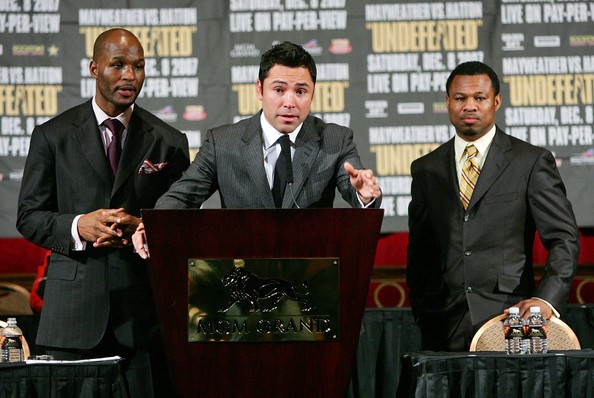Investing for High-Income Individuals
“It’s not how much money you make, but how much money you keep, how hard it works for you, and how many generations you keep it for.”
— Robert Kiyosaki
A lot of people make a million dollars in their lifetime. However, very few of these people have the financial acumen – or restraint – to invest their wealth in their future. If you are a millionaire by the age of 40 and bankrupt two years later, what was the point? You may have enjoyed spending the money, but you have gained nothing.
 One of the most important – and difficult – things for high-income individuals to do is preserve their wealth.
One of the most important – and difficult – things for high-income individuals to do is preserve their wealth.
Our natural inclination when we have money is to spend it. From an early age, we are conditioned to want things. We want the big house, or the fast car. We see symbols of status and wealth and want them for ourselves. When we have the money, we go out and buy the very things we once desired.
1031 Equity Exchange Network™ partners with high-income individuals to help them identify profitable investments and secure their financial future.
With more than 25 years experience in commercial real estate, we understand how to help people turn one solid investment into a lifetime of wealth and security.
Some of our investors fall under one of these categories:
Athletes
THE ESCALATING SALARIES OF PROFESSIONAL ATHLETES
Forty years ago, most professional athletes worked a second job in the offseason to make ends meet. Today, these athletes are instant millionaires as soon as they sign their first contract.
As salaries for athletes soar higher and higher, the need for professional money management becomes even more important. The number of athletes who squander millions and millions of dollars through bad investments, poor wealth management, fraud and sheer ignorance is staggering.
- Within two years of retirement, nearly 80 percent of former NFL players are bankrupt or under financial duress.
- Within five years of retirement, an estimated 60 percent of former NBA players are broke.
A REAL-LIFE EXAMPLE
Historically, boxing has been the sport with the highest rate of bankruptcy among its athletes. How many times have we seen a former champion dragged out of retirement long after his skills eroded, desperate for one last big payday?
What most of these athletes lack is professional wealth management.
Compare and contrast the following two stories. Boxer A is a former heavyweight champion of the world who earned an estimated $400 million in his career. In 2003, he declared for bankruptcy. Boxer B is a ten-time world champion who parlayed his success in the ring into an entertainment and real estate empire.
What was the difference between the two? One wasted a fortune on expensive cars, luxury homes, diamond jewelry and exotic animals and ripped off by his cohorts. The other boxer founded a promotional company and invested heavily in commercial real estate.
Today, Mike Tyson (Boxer A) is nearly penniless and reportedly owes the U.S. government millions of dollars in back taxes. Oscar de la Hoya (Boxer B), on the other hand, is thriving. His promotional company – Golden Boy Promotions – is one of the largest in the country, and he owns a number of high-rise buildings in downtown Los Angeles.

In 2005, de la Hoya and his business partners struck a $100 million deal to renovate low-income sections of Los Angeles. He holds real estate interests in Los Angeles and New York, and also owns stakes in several Hispanic-language newspapers. Recently, he converted an old beer distribution warehouse in California into an affordable mixed-use development of retail shops and housing units.
In other words, de la Hoya prioritized investing his wealth in commercial real estate and other profitable ventures. It is an example worth emulating.
WHAT LESSON CAN OTHER PROFESSIONAL ATHLETES LEARN FROM THIS EXAMPLE?
Athletes are conditioned to feel invincible; in fact, this bravado becomes a part of their very identity. The idea of saving for the future, when they are no longer able to compete, is foreign to many athletes. They find it difficult to envision being unable to compete.
However, the simple reality facing all athletes is that their career will eventually end. For this reason, it is important for athletes to understand that their paychecks should not just last until retirement – they should last for a lifetime.
Because the professional careers of most athletes tend to be brief, it is vitally important that they use some of their wealth to invest in their long-term financial stability.
Join the 1031 Equity Exchange Network™ and we can help you preserve your life earnings through commercial real estate investments.
Lotto Winners
A CAUTIONARY TALE
Imagine that you are a recent lottery winner. After grinding away at your blue-collar job for 25 years, you win the lottery and decide that it is time to start enjoying life. You start an exotic car collection, invest in a number of start-up companies, and buy sprawling mansions for your parents and siblings. Family members you didn’t even know existed start coming out of the woodwork, asking for money.
Five years later, you are broke and just another sobering statistic. What happened? How could you have squandered all of your money?
According to some estimates, more than 70 percent of lottery winners go bankrupt within five years of winning the jackpot. The simple explanation for this statistic is money mismanagement. Most lottery winners were not wealthy prior to winning the lottery; they have no idea how to manage their wealth. Often, their response is to start spending it, with little regard for what it will cost to maintain the properties they buy or how much they will have to pay in taxes.
As a lottery winner, one of the first things you should do is retain the services of a professional wealth manager. The goal for lottery winners should be to secure a lifetime of wealth of security, not to become another cautionary tale. Professional wealth management can help you accomplish this goal.
WHAT SHOULD YOU DO WITH YOUR LOTTERY WINNINGS?
As a lottery winner, the most important thing you can do in the first year is make an investment.
In 2005, Brad Duke won a $220 million dollar jackpot. After choosing the lump sum payment and paying his taxes, Duke walked away with $85 million. Rather than go on a spending spree, Duke took one month and assembled a team of financial managers to help him invest his money. Here’s what he did with his winnings:
- Invested $45 million in safe, low-risk investments like municipal bonds
- Invested $35 million in assets like oil, gas and commercial real estate
- Established a family foundation
- “Blew” $63,000 on a trip to Tahiti with 17 friends
- Paid off the mortgage on his 1,400 square foot home
- Paid off his student loans
- Spent $65,000 on new bicycles
- Bought a used Volkswagen Jetta for $14,500
- Established an annual gift of $12,000 to each of his family members
As a lottery winner, it is vitally important that you make an initial investment with your winnings in the same fiscal year you won. Consider the following scenario: If you win $10 million, the state you won the lottery in will collect about $3.5 million of that in taxes. Investing in commercial real estate is one of the best ways to delay paying exorbitant taxes on your winnings.
However, this investment (or series of investments) must be made within the fiscal year you won the lottery. You cannot retroactively recoup taxes you paid several years ago on a lottery jackpot.
Far too often, lottery winners find themselves in financial ruin just five years after winning. The primary reason for this is a lack of trustworthy, professional money management. Join the 1031 Equity Exchange Network™ and we can help you preserve your lottery winnings in commercial real estate. Investing in commercial real estate allows you to defer taxes today and reap the benefits of owning property tomorrow.
Other High-Earning Professions
Start on the road to a smarter, more strategic approach to your financial future by investing in commercial real estate. Safe investments are critical to your financial independence. Protect your hard-earned equity while acquiring tangible assets.
The following high-income individuals can greatly benefit from the tax-deferred advantages of 1031 Exchanges:
Doctors
Investing in commercial real estate is an excellent way to accumulate tangible assets and build a lifetime of wealth without losing sight of your medical practice. If you are looking to secure a strong financial future for your family, the tax-deferred benefits of a 1031 Exchange are worth investigating.
At 1031 Equity Exchange, LLC, our full suite of investment services – from asset acquisition and management to asset disposition – allows you to focus on your career while we focus on your financial future.
Investing in commercial real estate is an excellent way to accumulate tangible assets and build a lifetime of wealth without losing sight of your medical practice. Executing multiple 1031 Exchanges is an excellent way to build a diverse and profitable investment portfolio. As mentioned earlier, a 1031 Exchange allows you to invest your hard-earned equity into another property without being liable for capital gains taxes.
Entrepreneurs and High-Tech Industries
By its very nature, entrepreneurship is inherently risky. The most successful entrepreneurs are the ones who strike it rich and then secure their wealth in more stable investments. If you have a large amount of capital and no idea what to do with it, investing in commercial real estate is a safe and profitable option.
Whether you founded your own enterprise company, developed a new product or work in a high-tech industry, investing in commercial real estate is an excellent option. Unlike other forms of investments, commercial real estate provides the peace of mind and security that comes with owning a tangible asset. Rather than gamble your hard-earned money on another risky idea, you can secure your wealth in a safe and profitable investment.
Even better, a properly executed 1031 Exchange allows you to invest your hard-earned equity into another property without being liable for capital gains taxes.
If you are a high-income individual and would like further information, please contact us at your earliest convenience. To learn more about 1031 Exchanges and Commercial Real Estate Investment, please contact us or continue perusing this website.
